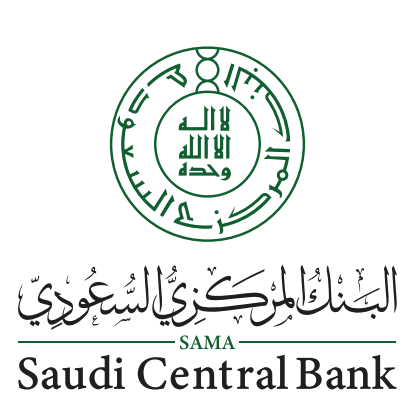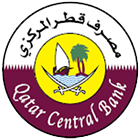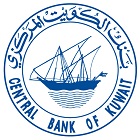GMCO's members include the national monetary agencies and central banks of the Member States, the signatory countries of the GCC Monetary Union Agreement, namely, the Kingdom of Bahrain, the Kingdom of Saudi Arabia, the State of Qatar, and the State of Kuwait.
Under the Law of the Central Bank of Bahrain and Financial Institutions issued on 6th September 2006, the CBB was established, replacing the Monetary Agency of Bahrain which was established in 1972. CBB was established in pursuance of its primary objectives set forth in the Law, namely; maintaining monetary & financial stability and achieving economic growth within the framework of the State's general policy.
The key functions of Bahrain Monetary Agency included issuance of the Bahraini Dinar (BD) and maintaining its full coverage in gold and foreign currencies. With the issuance of the new Law, the powers of CBB were expanded and its responsibilities included the issuance and management of the national currency, implementation of monetary policy, regulation of the banking sector, management of foreign exchange reserves, acting as the Government bank and its financial agent, and providing financial protection to consumers.
CBB capital is BD two hundred million fully paid up and owned by the Government. However, CBB enjoys an independent corporate personality in accordance with the provisions of its Law.
The Board of Directors manages and carries on CBB's affairs and sets bylaws related to its operations and administrative & financial affairs. The Board of Directors is composed of a Chairman and vice-chairman in addition to five other members with experience in economic and banking, including a representative of the Ministry of Finance. The Governor is the Chief Executive Officer of CBB, who manages and carries on its normal affairs under the supervision of the Board of Directors.

The Saudi Arabian Monetary Authority was established in 1377 H, pursuant to Royal Decree No. (23) to approve the statute of the Saudi Arabian Monetary Authority and subsequent laws, including the Fourth Saudi Monetary Law in 1379 H. The establishment of the Saudi Arabian Monetary Authority was pursuit of the main objectives stipulated by the law, which are maintaining the stability of the Saudi Riyal exchange rate and regulate the banking sector. In 1442 H, Royal Decree was issued to approve new statute in contemporary form, and to replace the naming of the Saudi Arabian Monetary Authority to the Central Bank of Saudi Arabia, while retaining the previous acronym "SAMA".
Entrusted with the role of the Monetary Authority in Saudi Arabia, SAMA maintained the stability of Saudi Riyal exchange rate against other currencies and its freedom of convertibility. At the beginning, SAMA had no role in monitoring money supply or banking credit. With the lapse of time and keeping pace with economic developments witnessed by Saudi Arabia, SAMA's powers expanded, and its responsibilities included issuance of the national currency, and acting as the Government bank & its financial agent.
As keen to continue progress and to keep abreast of international best practices, the Custodian of the Two Holy Mosques King Salman bin Abdulaziz Al Saud approved the Saudi Central Bank Law by Royal Decree No. M / 36 dated 04/11/1442 AH, the new Law included replacing the naming of the Saudi Arabian Monetary Authority to The Central Bank of Saudi Arabia, with direct reporting to the King, while the Central Bank continues to enjoy financial and administrative independence, in line with the international practices of central banks. The law also included a provision to replace the Saudi Arabian Monetary Authority with the Central Bank of Saudi Arabia in all rights and obligations. The Law, in its contemporary form, also seeks to continue to maintain monetary stability, enhance stability in the financial sector, and work to support economic growth through monetary policy. The law also included the emphasis that the central bank is responsible for setting and implementing monetary policy, in addition to clarifying the bank’s relationship with the government and relevant international external bodies, and establishing governance framework for the Board of Directors and its decisions.
The Board of Directors shall oversee the Bank’s activities, and is generally responsible for optimal management, and has all the necessary capacities to achieve that according to the Bank’s objectives. Also, the Board sets the necessary rules, instructions, regulations, and policies as it deems necessary and appropriate for the conduct of activities in the Bank in accordance with its Law. The Board of Directors consists of the Governor as Chairman and the Deputy Governor as Deputy Chairman, in addition to five members who are non-government employees, provided they have competence and experience related to the work of the Bank.

Qatar Central Bank was established by QCB law & the regulation of financial institutions law and its subsequent laws, the last of which was Law No. (13) issued in 2012. It replaced Qatar Monetary Agency, which was established in 1973. QCB was established in pursuance of its primary objectives set forth in the Law, namely maintaining monetary & financial stability and achieving economic growth within the framework of the State's general policy.
The key functions of Qatar Monetary Agency included issuance of the Qatari Riyal (QR) and maintaining its full coverage in gold and foreign currencies. With the issuance of the new Law, the powers of QCB were expanded and its responsibilities included the issuance and management of the national currency, implementation of monetary policy, regulation of the banking sector, management of foreign exchange reserves, acting as the Government bank & its financial agent, acting as the Bank of Banks, and safety valve for financial stability.
QCB capital is QR fifty billion fully paid up and owned by the Government. However, QCB enjoys an independent corporate personality in accordance with the provisions of its Law.
The Board of Directors manages QCB's affairs and sets bylaws related to its operations and administrative & financial affairs. The Board of Directors is composed of the Governor as a Chairman and the Vice-governor as the vice-chairman in addition to five other members with experience in economic and banking affairs, including a representative of the Ministry of Finance and Ministry of Commerce. The Governor is the Chief Executive Officer of QCB, who manages and carries on its normal affairs under the supervision of the Board of Directors.

Under the Law concerning Currency, the Central Bank of Kuwait and the Organization of Banking Business issued on 30th June 1968, the CBK was established, replacing the Kuwaiti Currency Board which was established in 1960. CBK was established in pursuance of its primary objectives set forth in the Law, namely maintaining the stability of the Kuwaiti Dinar exchange rate, organizing the banking sector, and achieving economic growth within the framework of the State's general policy.
The key functions of Kuwaiti Currency Board included issuance of the Kuwaiti Dinar (KD) and maintaining its full coverage in gold and foreign currencies. With the issuance of the new Law, the powers of CBK were expanded and its responsibilities included the issuance and management of the national currency, implementation of monetary policy, regulation of the banking sector, management of foreign exchange reserves, acting as the Government bank; through maintaining the Government accounts, management of Government loans, and assuming the function of the Government financial agent.
CBK capital is KD five million fully paid up and owned by the Government. Despite that, CBK enjoys an independent corporate personality in accordance with the provisions of its Law.
The Board of Directors manages and CBK's affairs and sets bylaws related to its operations and administrative & financial affairs. The Board of Directors is composed of the Governor as a Chairman and the Vice-governor as the vice-chairman. The Board of Directors also includes representatives of the Ministry of Finance, the Ministry of Commerce & Industry in addition to four other members having experience in economic and banking affairs. The Governor is the Chief Executive Officer of CBK, who manages and carries on its normal affairs under the supervision of the Board of Directors.